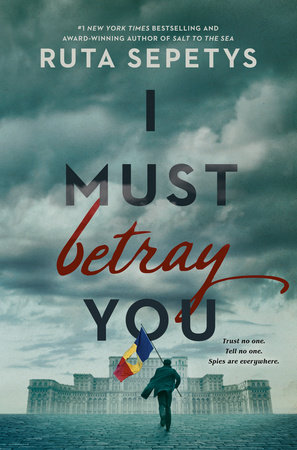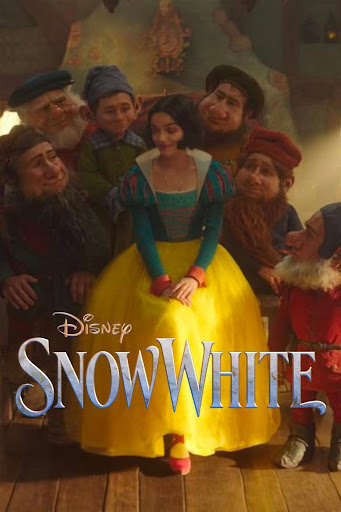Ruta Sepetys’ new book provides a chilling recount of Romanian history

courtesy image from Getty Images
Silenced. Powerless. Isolated.
This was the reality of life for Romanians under dictator Nicolae Ceaușescu for more than 20 years in the late 1900s. A reality that had been hidden from the rest of the world. A reality that we’ve never learned about in school. A reality that I discovered for the first time when I read Ruta Sepetys’ latest book, “I Must Betray You.”
The emergence of Romanian national communism in the ’60s brought a period of relaxation, with an increased availability of consumer goods, housing and social services. This time was accompanied by growing friction between Romanian prime minister Gheorghiu-Dej, the head of the Romanian Communist Party, and Soviet leader Nikita Khrushchev, the First Secretary of the Communist Party of the Soviet Union. This was in part due to Khrushchev’s de-Stalinization campaign because Gheorghiu-Dej was committed to Stalinism. He stopped taking advice from Moscow and began developing his own economic and foreign policy. This tension came to a head in a so-called “declaration of independence” by the Romanian Communist Party in 1964, and Ceaușescu’s succession after Gheorghiu-Dej’s death in 1965 came with only more problems for the Romanians.
Ruta Sepetys is well-known for her historical fiction books covering often overlooked sides of history. I’ve read and loved all of her past works, including “Between Shades of Gray” and “Salt to the Sea.” So, when I discovered this book, released Feb. 1, I got my hands on it as soon as possible. Safe to say, it met — possibly even surpassed — the standards of her previous books.
“I Must Betray You” follows 17-year-old Cristian Florescu, who is living in Romania in 1989 and dreams of becoming a writer. But his dreams are illegal under Ceaușescu’s tyrannical dictatorship. He is blackmailed by the Securitate, Ceaușescu’s secret police, to become an informer on the son of an American diplomat. Informers were common, and you never knew who could be leaking your secrets to the Securitate, so everyone had to be careful. Being an informer goes against everything Cristian believes in, but he has no choice in the matter, so instead, he tries to use his position to undermine Ceaușescu’s dictatorship. He navigates love, betrayal and suppression and risks everything to expose the truth of the regime to the rest of the world and join the revolution to fight for change. But at the end of the day, who can he really trust?
To the outside world, Ceaușescu was a free-thinking nonconformist to the Soviet Union’s will, a paragon of anti-Soviet Communist leadership. He remained popular among Western countries for this reason despite being a Communist leader. He continued efforts to lessen the country’s dependence on the Soviet Union and established diplomatic and economic relations with Western countries by visiting heads of state, including U.S. president Richard Nixon.
In Romania, however, it was a much different story. Ceaușescu’s July Theses of 1974 demanded a return to rigid ideological orthodoxy, and the Communist Party increased control of mass organizations and intruded into the daily lives of citizens like never before. In 1982, in an effort to pay off Romania’s large foreign debt, he ordered the export of much of the country’s agricultural and industrial production, resulting in severe shortages of fuel, energy and other basic necessities that drastically lowered living standards. Romanians would spend below freezing winter nights without power and wait in ration lines for hours at a time because bread, flour, soil and sugar were so strictly rationed. Romanian women in particular suffered, as, in an effort to boost the population, Ceaușescu banned contraception and abortion and subjected women to compulsory monthly examinations by state doctors. Many women didn’t want to raise a child in such impoverished conditions, so there was an increase in backyard abortions, leading to tens of thousands of deaths. The Securitate maintained rigid controls over free speech and media and tolerated no internal dissent and opposition; foreign goods like Coca-Cola and Twinkies were considered contraband, and possession could lead to a lot of trouble. Under Ceaușescu, Romanians suffered daily hardship, and worst of all, the rest of the world knew nothing.
Sepetys does an incredible job of crafting the setting to help readers understand life in Communist Romania through the first-person perspective. Through Cristian’s internal commentary and day-to-day adversity, we get a unique look into the life of an ordinary citizen in an oppressive regime. From the Dacias driven by the Securitate to the Kents used as currency, Sepetys paints an extremely detailed picture of life. And from the torture methods inflicted on children to the threats made by the Securitate, she spares no gruesome, horrifying detail. She consistently weaves in historical context to convey the facts while keeping the story highly engaging. There’s a tense, on-the-edge atmosphere throughout the entire book, as the reader only knows as much as Cristian does, and it seems like everything could blow up at any moment. Like always, through her descriptive, gripping writing style and masterful development of the setting, she really takes the readers into Cristian’s world to experience a sliver of what Romanians endured.
Although the last third of the book saw significantly more action than the first two-thirds, the story enraptured me immediately. Being a massive history lover, I was fascinated to learn about a piece of history that I’d never heard about before, so I found the book difficult to put down from the beginning. The storyline was well-thought out, with the last bit being extremely action-packed and engaging as Cristian fights in a protest for change. The buildup to the protest was immense, with repeated abuses by the regime and Cristian’s growing resolve to fight, and the plot pretty much exploded after that. I wasn’t aware of the ticking clock, or the fact that it was a school night, because I was so immersed in the story.
Sepetys creates likeable characters whom we sympathize with and root for. As Cristian discovers informers, we feel his betrayal; as he loses members of his family, we feel his pain; as Romanians band together and fight to the death, we feel their solidarity and determination. And when they finally achieve victory and freedom from Ceaușescu’s oppression, we celebrate with them.
There are no words for how I felt when I closed the book. The events of the story profoundly impacted me, and I felt inspired to research the events of Romania out of shock and disbelief. I learned more about Ceaușescu’s rise to power, his impression on the outside world and his abuses towards the Romanian people, which allowed me to connect with the story on a deeper level. The fact that such an atrocity happened, and so recently, humbled me. It made me think of my own privilege: I’ve never spent freezing winter nights without power, or been forced to wait in line for hours just for a moldy loaf of bread, or had my own freedom of speech so suppressed that I couldn’t speak up about my own suffering. I’ve never had to worry about losing the voice with which I wrote this review. Throughout the book, I learned about powerful ideas like hope, despair, survival and the frustration of being silenced when there’s so much to say. I learned to value my voice and not take it for granted.







